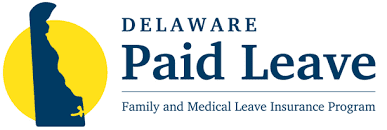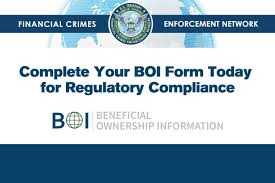DEC 2024, Vol 21, Issue 12
Overview
- Delaware Paid Leave Extension
- Time to Update Your AAPs
- Delaware Minimum Wage Increases
- Stay Ahead, Review and Update your Handbook
- Beneficial Ownership Information Register by 1/1/25
- Delaware Anti-Sexual Harassment Law Training Requirements
Delaware Paid Leave Extension
If you are planning to use a private insurance plan instead of the Delaware Paid Leave plan to provide paid Family and Medical Leave benefits you must submit your policy for consideration by December 15, 2024.
Below is the notice that can be shared with your employees 30 days prior to deductions being withheld or you can use this link https://www.hrstrategies.org/img/notice-of-the-start-of-contributions-1.pdf to download the pdf.
Notice that payroll deductions for Delaware Paid Leave are starting
What is Delaware Paid Leave? Delaware Paid Leave is the name of Delaware’s Paid Family Medical Leave (“PFML”) insurance program that was created through the Healthy Delaware Families Act (the “Act”), which was signed in to law in May of 2022. The Act is a new state law based on the 30+ year old federal Family Medical Leave Act (FMLA), which allows employees of larger companies take unpaid but job-protected leave when they experience certain significant events in their lives. Delaware’s new program will pay income-replacement benefits to those employees that face the same types of life events that FMLA covers.
Beginning on January 1, 2025, employers that are required to participate in this plan (including, your employer) must begin assessing contribution rates against their employees’ covered wages. Employers that are covered by the mandate (such as, yours) can require their employees to share in part of the cost of this program. Employers are legally responsible for 100% of the required contributions, but they may deduct up to half of the cost of the program from their employees’ paychecks.
Contributions into and benefits from Delaware Paid Leave are based upon the Federal Insurance Contribution Act (“FICA”) wages that you earned inside the State of Delaware. Employers can require their employees to pay up to 0.4% of covered wages ( or 0.04%, if the employer is only mandated to provide Family Caregiver/QE Leave). In any year, “covered wages” are limited to the same maximum as is used for Social Security taxes.
Beginning January 1, 2026, Delaware workers will be able to start taking paid job-protected leave. The contributions from this first year of the program will be used to build the Trust Fund that will pay out PFML claims and expenses. In 2026, you will be able to put in an application for Paid Family Medical Leave benefits.
Why am I required to join Delaware Paid Leave? You are required to participate in Delaware Paid Leave if:
- You primarily work in Delaware (at least 60% of your time physically working in the state);
- You do not possess certain types of immigration visas that are excluded under the Federal Insurance Contribution Act (“FICA”);
- Your employer’s business does not close for 30 or more straight days; and
- You are one of at least 10 Delaware-based eligible employees.
You can be Waived from paying contributions if:
- You do not intend to work for your employer for 12 or more months; or
- If you do not expect to work (on average) 25 hours per week.
Employer mandates such as this do not usually extend to all employers, but this one pretty much does. The only exceptions are federal government agencies, railroads, and seasonal businesses. Every other type of employer, governments (the State, the three Counties, & the 57 Municipalities), religious organizations, and non-profits are all required to comply with Delaware Paid Leave.
What type(s) of leave is my employer required to provide? The type(s) of PFML coverage your employer is required to provide depends upon the number of eligible Delaware employees your employer has.
- Employers with 1-9 covered employees are not required to provide PFML benefits
- Employers with 10-24 covered employees are required to provide Parental Leave.
- Employer with 25 or more covered employees are required to provide all PFML coverages.
Employers may choose to opt-in to the Delaware Paid Leave (DPL) insurance program to provide more benefits than required. Please visit de.gov/paidleavefor more information.
Within 30 days of January 1, 2026, when we will start accepting claims applications, your employer will notify you as to which lines of PFML coverage (Parental, Medical, and/or Family Caregiver/QE Leave). As your employer’s employee count rises and falls over time, your employer will be required to give you updated information on the lines of PFML coverage that you will receive.
- - - -
Time to Update Your AAPs
Many Affirmative Action Plans (AAPs) expire on December 31, 2024. Under federal law, government contractors and subcontractors with 50 or more employees who have entered into at least one contract of $50,000 or more with the federal government must prepare and maintain a written affirmative action program. AAPs must be developed within 120 days from the commencement of the contract, updated annually, and submitted to DOL during the first quarter of 2025.
- - - -
Delaware Minimum Wage Increases
The minimum wage will increase from $13.25 to $15.00 per hour in Delaware effective January 1, 2025. The minimum cash wage for tipped employees will be $2.23 per hour.
- - - -
Stay Ahead, Review and Update your Handbook
Although there are no laws, state or federal, which require companies to have an employee handbook, there are state and federal laws requiring the presence of written employment policies. If legal compliance isn't incentive enough for having an employee handbook, there are many other benefits. An employee handbook helps to explain the advantages and benefits of working for your company, it describes the expectations the company has of the employee in addition to communicating what the employee can expect of the company.In addition, the handbook clarifies important company policies and problem-solving procedures. Not having a well-defined handbook available to your workforce may negatively impact it and often times will result in litigation.
Employers risk liability if they do not periodically review and revise their handbook. Regularly updating your handbook will help to ensure that it remains compliant with applicable laws and that it is still meeting your needs.
Below are some areas to review to determine if you need to revise and update your employee handbook:
- have major changes been made to the company’s philosophy;
- what new practices were implemented this year;
- have you incorporated the new regulations that became effective in 2024 into your handbook;
- which regulatory changes are affecting the company’s business practices;
- have changes been made to the performance review process or different benefits offered;
- are there new compliance requirements mandated by customers?
If any of the aforementioned have changed, make sure you modified related policies.It is vital that any revisions to your handbook do not include contractual or promissory language. Words such as "will" or "always" should be avoided as much as possible. In addition, when making any adjustments to your handbook, do not simplify its contents too much. By doing so, you may be eliminating important language intended to demonstrate your company's compliance with certain laws.
Creating an employee handbook is only the first step toward a more efficient workplace. The employee handbook won't do much good if it's not maintained. In fact, an outdated handbook can actually be more detrimental than no handbook at all. Use the tips found above to periodically review your handbook, ensure compliance with current labor laws, and secure efficiency within your workplace.
- - - -
Beneficial Ownership Information Register by 1/1/25
Beneficial ownership information refers to details identifying the individuals who ultimately own or control a company, a crucial piece of data used to combat financial crimes like money laundering and corruption by providing transparency regarding who is behind a business entity; under the Corporate Transparency Act (CTA), most U.S. companies are now required to report this information to the Treasury Department's Financial Crimes Enforcement Network (FinCEN), allowing law enforcement to trace the flow of funds more effectively.
Key points about beneficial ownership information:
What it includes: This information typically consists of the names, addresses, dates of birth, and identifying document numbers of the individuals considered to be beneficial owners of a company.
Why it's important: By revealing the people behind shell companies, beneficial ownership information helps to prevent criminals from using anonymous corporate structures to hide illicit activities like drug trafficking, terrorism financing, and tax evasion.
Who needs to report: Most companies formed or registered to do business in the United States are required to file beneficial ownership information reports with FinCEN, including corporations, limited liability companies (LLCs), and other similar entities.
How to report: Companies must submit their beneficial ownership information through a secure online portal managed by FinCEN.
Enforcement: Failure to comply with beneficial ownership reporting requirements can result in significant penalties, including fines and potential criminal charges.
- - - -
Delaware Anti-Sexual Harassment Law Training Requirements
The Delaware law that specifically addresses prohibition against sexual harassment under the Delaware Discrimination in Employment Act (DDEA), requires interactive anti-sexual harassment training requirements for employers, with 50 or more employees in the state, every two years.
Contact HR Strategies to schedule your organization’s required training.
- - - -
We wish you and yours a wonderful holiday season. Contact HR Strategies at 302.376.8595 or info@hrstrategies.org if you would like support or would like to learn more about the items in this newsletter. Please contact us if you would like to be added to our Monthly Strategies mailing list or if you would like for us to add someone to our mailing list.
Find more related articles:
- Delaware Paid Leave Plan
- Delawares Paid Family Medical Leave PFML
- Healthy Delaware Families Act
- Family Medical Leave Act FMLA
- Federal Insurance Contribution Act FICA
- Family Caregiver QE Leave
- Affirmative Action Plans AA Ps
- Delaware Minimum Wage
- Employee Handbook
- Beneficial Ownership Information BOI
- Treasury Departments Financial Crimes Enforcement Network Fin CEN
- Delaware Discrimination In Employment Act DDEA
- Interactive Anti Sexual Harassment Training





